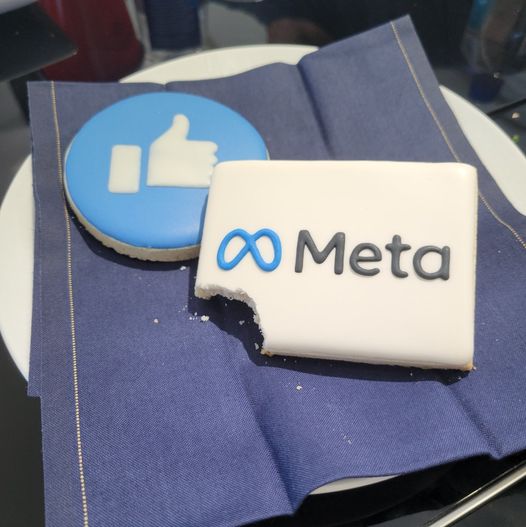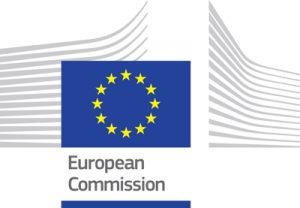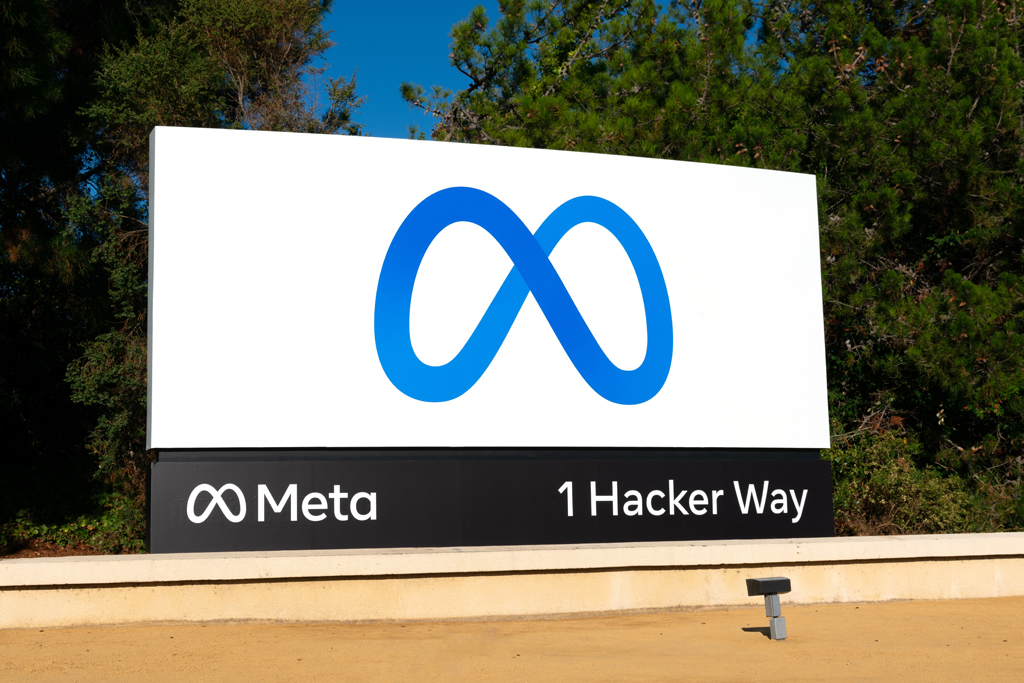What is the Metaverse and how will it affect advertisers?
Facebook’s announcement that it is now Meta is creating ripples throughout the advertising and digital marketing world. But what is the Metaverse and how will it affect advertisers?
The origins of the metaverse
Meta has its roots in the classics – the word is Greek for beyond – but the phrase ”metaverse” was coined in Neal Stephenson’s 1992 science-fiction novel Snow Crash, in which people use digital avatars of themselves to explore online realms.
Wikipedia defines the metaverse as a collective virtual shared space, created by the convergence of virtually enhanced physical reality and physically persistent virtual space, including the sum of all virtual worlds, augmented reality, and the Internet.
It’s typically used to describe the concept of a future iteration of the internet, made up of persistent, shared, 3D virtual spaces linked into a perceived virtual universe. If you’ve seen Ready Player One that’s a fair interpretation of what the metaverse could be.

Mark Zuckerberg’s announcement of the Meta name change came with accompanying cookies
Facebook’s Meta announcement
Facebook’s CEO Mark Zuckerberg said: “The defining quality of the metaverse will be a feeling of presence — like you are right there with another person or in another place. Feeling truly present with another person is the ultimate dream of social technology.
“In the metaverse, you’ll be able to do almost anything you can imagine — get together with friends and family, work, learn, play, shop, create — as well as completely new experiences that don’t really fit how we think about computers or phones today. We made a film that explores how you might use the metaverse one day.”
The company is planning to hire 10,000 people in Europe to work on the metaverse, with Zuckerberg saying it has the potential to help unlock access to new creative, social and economic opportunities.
Facebook has invested heavily in virtual reality, spending $2bn (£1.46bn) on acquiring Oculus, which develops its VR products. In 2019, it launched Facebook Horizon – an invitation-only immersive environment where users can mingle and chat in a virtual space with a cartoon avatar through Oculus headsets.
Controversy surrounds the metaverse update
With Facebook’s reputation damaged by recent scandals – including whistleblower Frances Haugen’s revelation that internal research by the company had found that Instagram was affecting the mental health of teenagers – many think the announcement is designed to re-establish its reputation.
Facebook is also at the centre of a row with Apple over access to people’s data, and is being sued by the US’s Federal Trade Commission, which claims it has been illegally maintaining its personal social networking monopoly through a years-long course of anticompetitive conduct.
What is changing with Facebook’s advertising?
Zuckerberg has been keen to point out the change does not apply to its individual platforms, such as Facebook, Instagram and Whatsapp, only the parent company that owns them.
At the moment there’s not a great deal of change as the metaverse space is still in development. However, preparing for the future and having a team ready to jump into the metaverse as soon as they can is a good idea.
It’s been proven time and again that brands who jump onto new platforms first and start experimenting with content usually end up rewarded.
Meta has set aside $150 million dollars to train the next generation of creators to build immersive learning content. They are also creating a professional curriculum and certification process to make it easier to monetise.
The company is launching certifications and putting money into training resources, so it pays to make sure your team has the knowledge and skill to take advantage as soon as possible.
Brands already looking into both Augmented Reality and Virtual Reality will be in a much better place to become involved in the metaverse than those that haven’t started.
How can we get involved in the metaverse?
Homewear, clothes, art, jewellery, cars, houses – pretty much anything – can be sold within the metaverse, even services.
Nike has already filed new trademark applications. According to the U.S. Patent and Trademark Office, Nike filed applications on October 27th for ‘Nike’ the brand’s famous slogan ‘Just Do It’, and its swoosh logo.
The following day, two more applications, for ‘Air Jordan’ and ‘Jumpman’ logos, were filed. The company knows it will be able to market virtual versions of its famous Air Force 1s for people to wear on their metaverse avatars.
Other companies including Epic, Roblox, Unity and Minecraft have been using the metaverse term for some time and have already announced plans to expand on content.
Fortnite, Minecraft, and Animal Crossing are games that already have big user bases, detailed worlds, and user-generated content. Roblox was able to raise $150 million in February on the strength of its user base in a round that venture capital firm Andreessen Horowitz led.

Meep City is the top Roblox game of all time with 4.5 billion plays (Roblox officially calls these visits). Image Credit: Roblox
According to Forbes: “Marketing and communications professionals need to pay attention to the metaverse because it’s the next frontier for online interaction. Just like social media revolutionized the online marketing landscape, so too will the metaverse.
“While we don’t have one shared metaverse at this time, there are companies positioning working on creating it.”
Lindsey McInerney, global Head of Technology and Innovation at Anheuser-Busch InBev, spoke to Built In recently and explained that marketing is all about getting to where the people are.
She added: “A fully immersive environment is ripe with all manner of possibilities, from targeted marketing and advertising opportunities to fully virtualized brand experiences.”
Meta is removing options for targeted ads based on sensitive information
In one of its first major moves since rebranding as Meta, the company plans to remove options to target audiences based on how people reference causes, organisations or public figures.
Meta said it will no longer let advertisers buy targeted ads for users based on sensitive information such as race, political affiliation, sexual orientation, religion or health. The changes will come into effect on January 19th and will be rolled out across all the company’s platforms – Facebook, Instagram, Messenger and WhatsApp – as well as its network of other websites and apps that use Facebook’s ad-targeting tools.
Graham Mudd, Meta’s vice president of product marketing and ads, wrote in a blog that the company wants to ‘better match people’s evolving expectations of how advertisers may reach them on our platform’.
He said the changes were based on feedback from policymakers, civil rights experts and others as a way to prevent advertisers from abusing the platform.
Examples include:
- Health causes (Lung cancer awareness, World Diabetes Day, Chemotherapy);
- Sexual orientation (same-sex marriage, LGBT culture);
- Religious practices and groups (Catholic Church, Jewish holidays);
- Political beliefs, social issues, causes, organisations, and figures.
Mudd added: “It is important to note that the interest targeting options we are removing are not based on people’s physical characteristics or personal attributes, but instead on things like people’s interactions with content on our platform.”
European lawmakers pushing for advertising data regulation
At the Web Summit tech conference earlier this year, Věra Jourová, European Commission vice president for values and transparency, said sensitive personal information shouldn’t be allowed for use in political advertising.

Users should know why they’re seeing an ad, who paid for it, and which data was used to target them, and she added that there should be a way to opt out.
“As we always say in Europe, we want technologies to serve the people and not vice-versa. Big Tech has really big power, but they did not assume the responsibility,” she said during a press conference in Lisbon.
A darker side to the metaverse?
TechRadar’s Hamish Hector, in an opinion piece on the website, offered up a cautious view. He said: “It’ll be easier than ever for businesses to integrate into our day-to-day lives in the digital space, likely giving us less freedom from ads than ever before and serving Meta a healthy revenue stream as it takes some kind of commission.
“On top of that, we can’t ignore that Meta’s announcements come as its social media platforms are accused of knowingly enabling criminal acts and allowing the rampant sharing of harmful misinformation. As guardians of a metaverse go, Meta wouldn’t be our number one choice.”
In Conclusion
No-one knows for sure what Facebook’s rebranding to Meta will mean in the future, but the idea of an interconnected metaverse is one which advertisers and digital marketers need to take seriously.
One thing is certain, those who are prepared for a virtual world will be ahead of the competition and will be able to seamlessly move into a metaverse marketing campaign once more is known.

